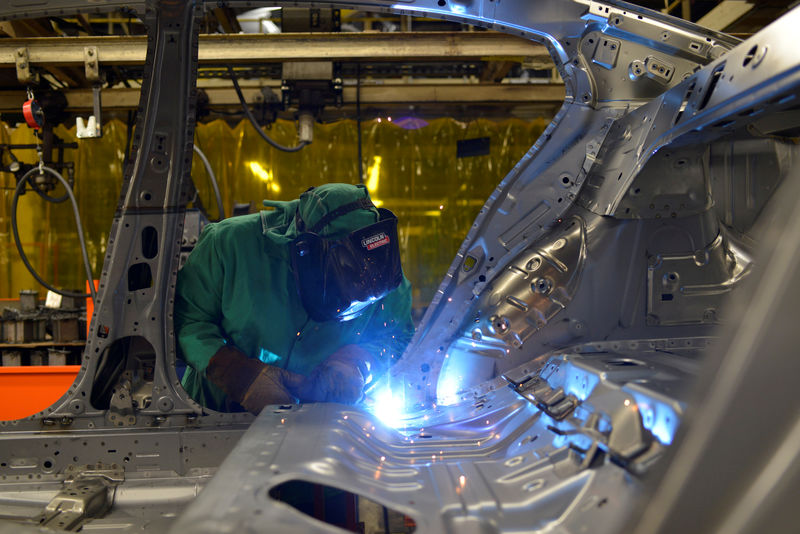WASHINGTON (Reuters) - New orders for U.S.-made goods fell more than expected in September and business spending on equipment was slightly weaker than initially thought, suggesting that manufacturing remains soft amid the ongoing U.S.-China trade war.
Factory goods orders declined 0.6% after dipping by an unrevised 0.1% in August, the Commerce Department said on Monday. Economists polled by Reuters had forecast factory orders would drop 0.5% in September.
Factory orders fell 0.3% compared to September 2018. Shipments of manufactured goods declined 0.2% in September after decreasing 0.3% in the prior month.
Pointing to underlying weakness in the sector, which accounts for about 11% of the economy, unfilled orders at factories were unchanged after edging up 0.1% in August. Inventories rose 0.3% in September after dipping 0.1% in August.
Manufacturing has been hobbled by a 16-month trade war between the United States and China, which has also caused a drop in business investment. U.S. and Chinese negotiators have been racing to finalize a text of a 'phase one' agreement between the world's two largest economies.
A critical date is Dec. 15, when new U.S. tariffs on Chinese imports such as laptops, toys and electronics are set to kick in.
Transportation equipment orders dropped 2.8% in September after increasing 0.2% in August. Orders for civilian aircraft and parts dropped 11.8% after declining 17.2% in the prior month.
Orders for computers and electronic products fell 1.2% but orders for electrical equipment, appliances and components rose 0.7%. Machinery orders edged up 0.2% in September after decreasing 0.3% in August.
The Commerce Department also said September orders for non-defense capital goods excluding aircraft, which are seen as a measure of business spending plans on equipment, dropped 0.6% instead of the 0.5% drop reported last month.

Shipments of core capital goods, which are used to calculate business equipment spending in the gross domestic product report, declined 0.7% in September, the same as previously reported. Business investment declined at its steepest pace in more than 3-1/2 years in the third quarter.